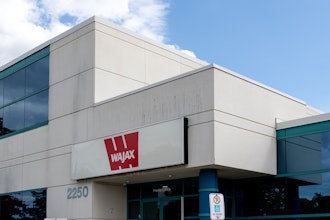
Plumbing and industrial supply giant Ferguson reported another quarterly decline in sales, earnings and profits during its latest fiscal window, but expressed optimism about the remainder of its fiscal year.
The U.K. company, whose U.S. headquarters is located in Virginia, reported nearly $6.7 billion in sales in its second quarter, down 2.2% from the more than $6.8 billion in the same quarter a year ago. Company officials said acquisitions bolstered its revenue by 1.5% in the quarter, partially offsetting a 3.7% drop in organic revenue.
Gross profit, meanwhile, fell by more than 13% over that span — from $582 million to $549 million — as diluted earnings per share slipped from $1.91 to $1.80, a decline of just over 12%.
Gross margin increased by 20 basis points to 30.4% year-over-year, but operating margin fell by 90 basis points to 8%.
Ferguson officials blamed “modest” price deflation in select commodity-related categories, along with declines in both residential and non-residential sales. The company also noted that its latest results went up against a particularly strong second quarter report last year.
Net sales in Ferguson’s U.S. operations also declined by 2.2% amid subdued residential end markets — despite some improvement in new housing starts and permitting — and a soft repair and maintenance segment. The company’s non-residential end markets showed “resilience” amid a 1% decline in revenue.
In Canada, Ferguson’s sales dropped by 3.7% in the quarter. The company's North American industrial operations came in at no. 16 on ID’s latest Big 50.
Ferguson CEO Kevin Murphy highlighted an improved organic performance compared to the first quarter of its fiscal year, and argued that Ferguson is well-positioned to take advantage of “emerging multi-year structural tailwinds” in non-residential construction. The company maintained its full-year forecast for flat sales and an adjusted operating margin of between 9.2% and 9.8%.
“Current open orders and sales per day trends support our expectation of improvement through the balance of the fiscal year against easing comparables,” Murphy said in a statement. “We are appropriately managing costs as we prepare for our seasonally stronger second half.”






















